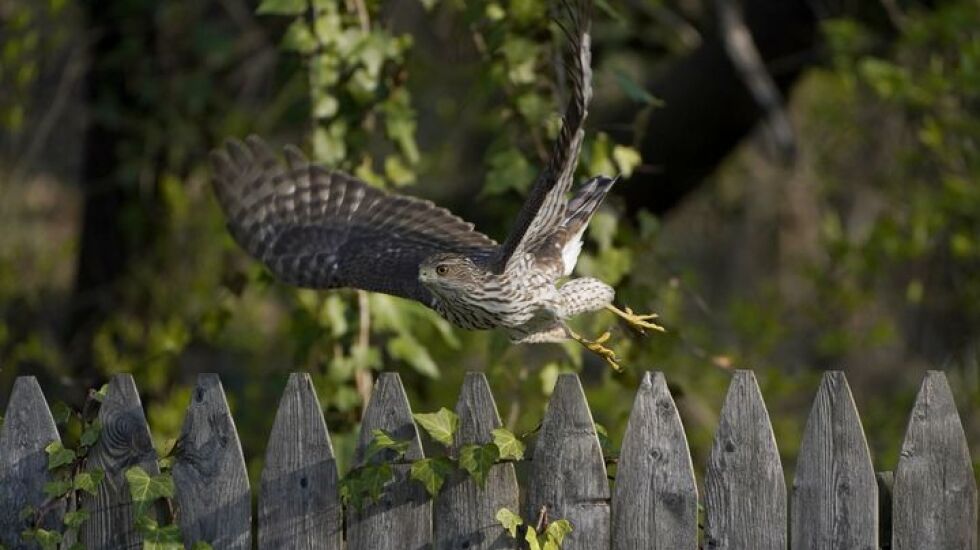
The Cooper’s Hawk sat perched on a branch so close that Andrew Stern didn’t need the binoculars dangling from his neck.
A wind gust startled the bird. It spread its enormous tawny wings and took flight.
Though Stern, 66, comes to the bird sanctuary at Montrose Harbor about once a week, he wasn’t completely sure he was looking at a Cooper’s Hawk on Thursday. Another birder confirmed its identity.
Things are about to get more confusing for Stern and other bird-watchers.
The American Ornithological Society announced this week that it plans to rename birds named after humans — beginning in 2024 — to “address past wrongs and engage far more people in the enjoyment, protection and study of birds.”
“There is power in a name, and some English bird names have associations with the past that continue to be exclusionary and harmful today. We need a much more inclusive and engaging scientific process that focuses attention on the unique features and beauty of the birds themselves,” AOS President Colleen Handel said in a statement. “Everyone who loves and cares about birds should be able to enjoy and study them freely — and birds need our help now more than ever.”
The bird group says North America has lost about 3 billion birds since 1970.
In 2020, the bird society got rid of McCown’s Longspur, renaming it the Thick-billed Longspur because John P. McCown was an amateur naturalist who later became a general in the Confederate Army.
The society said it plans to start with 70 to 80 bird species that occur mainly in the U.S. and Canada.
“The AOS commits to actively involving the public in the process of selecting new English bird names,” according to the bird group.
So no more Cooper’s Hawk, no more Wilson’s Warbler — two birds that eagle-eyed Illinoisans might see in their home state.
Who exactly was William Cooper, the man for whom the hawk is named? He was an American naturalist born in 1798 and one of the original officers of The New York Academy of Sciences. He was a man of “exceeding modesty,” according to a written history of the academy. “Over cautious in naming new species, he generously permitted others to use his material and sometimes to gain the credit that might have been his.”
The ornithological society’s plan to rename birds has sparked a debate in the birding community.
Stern called the plan “silly.”
“I just find it a little bit excessive. It’s one thing to take down statues of Southern Civil War generals and outright racists,” he said.
One online commentator called the renaming “woke birding.”
But Vicki Schneider, 62, a retired French teacher who lives in Lincoln Square, said she’s all for renaming birds.
“It’s great if it has to do with our murky past,” said Schneider, who comes to the Montrose bird-watching spot almost daily. “I’m interested in social justice.”
Annette Prince, director of Chicago Bird Collision Monitors, said it’s not so different from the renaming of the Sears Tower.
“People get used to it,” she said.
“It’s equitable to change a name that may have an offensive connotation. It’s probably best to [use] names that are more descriptive and less honorary,” Prince said.
Sunny Nelson, vice president of conservation and science at Lincoln Park Zoo, agrees but understands why opinions differ.
“There are going to be people who are on the side of — ‘I’ve memorized all these names and now I have to memorize completely different ones,’” Nelson said.
But, Nelson said, “Change is inevitable and here at Lincoln Park Zoo, we say we are for wildlife for all.”







